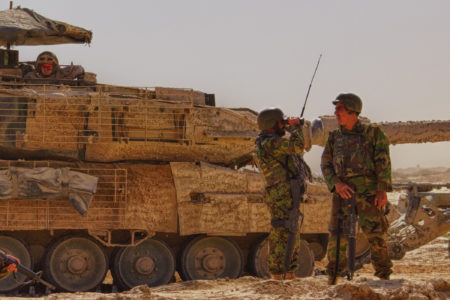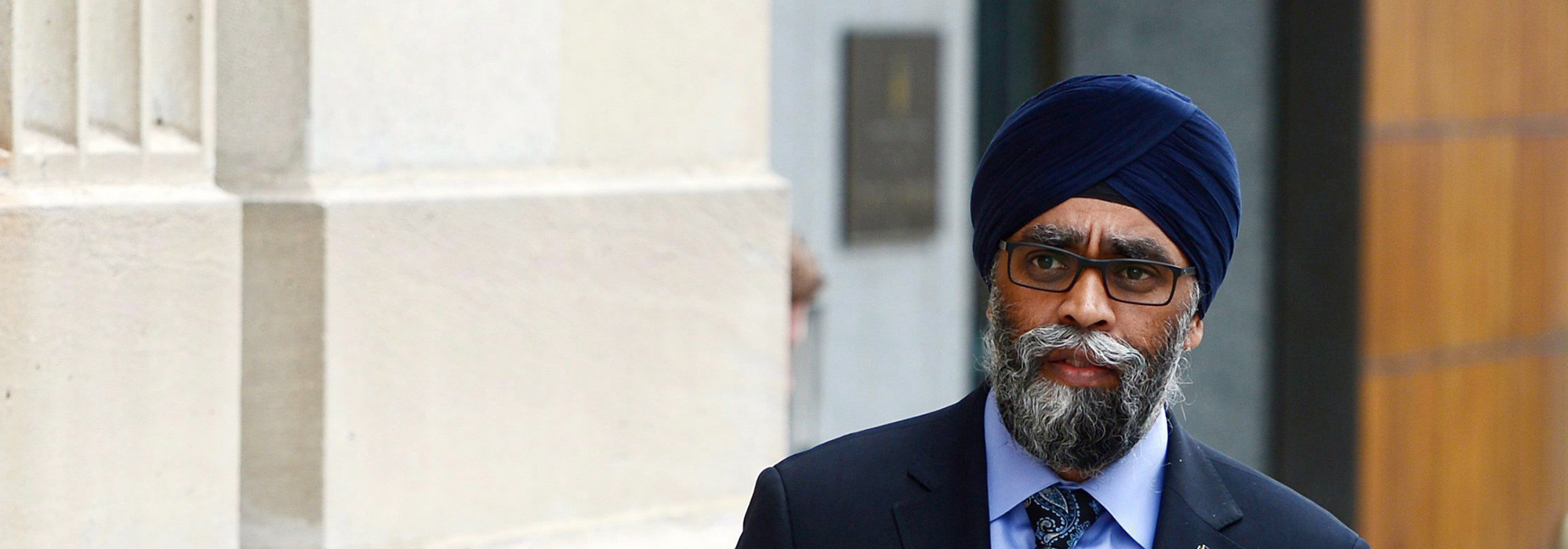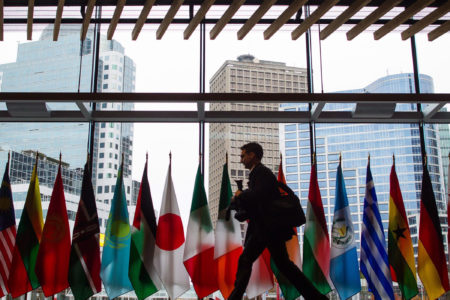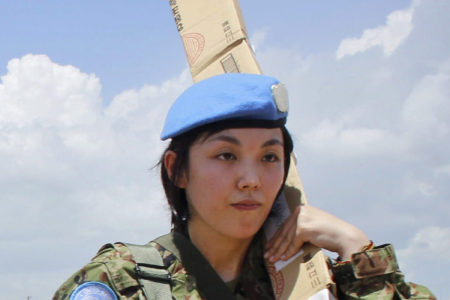
We made at least a beginning then. If on that foundation we do not build something more permanent and stronger, we will once again have ignored realities, rejected opportunities and betrayed our trust. Will we never learn? –
Lester B. Pearson, “The Four Faces of Peace”, Nobel Lecture, Oslo, December 11, 1957
Within the United Nations, and around this week’s international ministerial in Vancouver, hopes are high around Canada’s contribution to peace operations. Canada, once a leader in UN peacekeeping, is urgently needed, whether it’s to avert a wider war in South Sudan, to fill gaps in the Central African Republic, to support the stabilization of Mali or for help in other UN operations.
The Trudeau government’s promise of 600 Canadian Forces troops isn’t all that impressive – by UN standards, that’s modest. The Chinese, by way of contrast, are developing an 8,000-troop standby force. In June, Britain agreed to lead a multinational force of up to 10,000, with contributions from Sweden, Norway, the Netherlands, Denmark and four other member states. Even by Canadian standards, 600 troops may appear paltry. In 1993, when Canada was participating in every UN peacekeeping operation, the CF deployed approximately 5,800 troops to UN operations worldwide.
Nonetheless, there are three main reasons for international enthusiasm around Canada.
First, it potentially signals a wider, Western return to UN operations and there were hopes it might encourage former partners to contribute.
Second, it was hoped that Canada might bring with it much-needed assets (what the UN calls “critical enablers”) in strategic and tactical airlift, military engineering, a mobile field hospital, even helicopter fleets.
Third, Canada was once highly regarded for innovative reforms in UN peacekeeping – its ideas and expertise, particularly in the related areas of operational planning, training, peacebuilding and rapid deployment.
Rapid deployment is critical, especially if the UN is to improve on conflict prevention and protection of civilians. In the absence of a prompt response, conflicts tend to escalate and spread, then result in the current phenomena of later, larger, longer operations at far higher costs, setting back the prospects for disarmament and development for decades.
The rapid deployment of people and resources is particularly complex and demanding within both member states and the UN system. Prior planning, advance preparation and extensive training are essential to expedite the process, and any missing element may cause delays and failure. Rapid deployment is more than an arduous process; it’s also an aspiration and a long-standing reform objective.
If the government of Canada plans to be “back” in UN peace operations, with a credible focus on rapid deployment and conflict prevention, two key questions are “how” and “what is needed?”
The answers are multi-faceted.
UN peacekeeping has to be elevated to a national defence priority. This was a recent recommendation of the Group of 78 and the Rideau Institute, among others.
An independent team in the Prime Minister’s Office is also needed to supervise and direct a whole-of-government approach to UN peace operations. And to ensure peace operations are respected as a top priority, the DND’s Directorate of Peacekeeping Policy should be elevated to a CF Command headed by a supportive major-general.
What’s more, an independent research capacity on security, defence, conflict, disarmament and UN peace operations is critical to develop serious analysis, ideas and policy-relevant plans and proposals. The earlier Canadian Institute for International Peace and Security, initiated by former prime minister Pierre Trudeau, remains a model worth emulating.
Because UN peace operations are now complex multi-dimensional missions, including civilians, police and military, a wider peacekeeping partnership must also be renewed to draw on expertise in diverse sectors.
A “Peace Operations Forum” could be developed too, as an earlier effort proved to be a cost-effective means of coordinating and informing both civil society and government officials of recent developments in the field. Peacebuild, a policy network of Canadian NGOs and individuals, managed a similar working group until being cast over by the Harper Government in 2008. Aside from useful educational outreach, it also helped to maintain a much-needed constituency for UN peace operations.
Canada could also begin to address the United Nation’s 2004 call for the transformation of advanced military’s Cold War capacity to UN peace operations with the following:
- Assign two CF combat engineer regiments, an engineer support regiment and a construction regiment to stand at high readiness for UN peace operations;
- Designate three of the five CF CC-177 Globemaster III planes to support UN strategic lift, and eight of the 16 CF CC 130J planes to support tactical lift;
- Prepare a mobile field hospital to specialize in providing rapid humanitarian relief in operations abroad and;
- On a rotational basis, designate and prepare one of the CF’s three brigade groups as a high-readiness stand-by formation for UN peace operations.
Rapid deployment demands comprehensive prior preparation, including general, specialized and mission-specific training for the diverse skills required in complex UN peace operations, so Canada must also develop a dedicated peace operations training centre. Neither the CF Peace Support Training Centre (PSTC) nor the former Lester B. Pearson Peacekeeping Training Centre (PPC) were designed to deliver these requirements. A dedicated training centre, with space for joint exercises and simulations, would be ideal. It should be located next to an international airport and services for the trainees.
Finally, it’s widely apparent that the official preference for pragmatic, incremental reforms has not and cannot deliver a reliable capacity for UN rapid deployment. Understandably, governments remain reluctant to deploy their highly valued personnel and resources into operations that entail risks. Prevention and protection are laudable Responsibility to Protect (R2P) priorities, but they are unmanageable objectives in the absence of appropriate UN capacity.
The Trudeau government could lead in support of a Canadian-led proposal for a United Nations Emergency Peace Service (UNEPS), effectively a standing “UN 911 first responder” for complex emergencies. This idea stemmed from the former Liberal government study for the UN General Assembly, Towards A Rapid Reaction Capability for The United Nations. The proposed UNEPS was sufficiently developed to attract endorsements from leaders of UN peace operations, architects of R2P, peace and conflict scholars worldwide and numerous NGOs.
With this one development, the UN would finally have a rapid, reliable capacity to help fulfil four of its tougher assigned tasks. A UNEPS is designed to help prevent armed conflict and mass atrocity crimes, to protect civilians at extreme risk, to ensure prompt start-up of demanding peace operations and to address human needs where others either can’t or won’t.
What’s clear going into this week’s conference in Vancouver, is that a fundamental review of security approaches and priorities is overdue. The umbrella concept of sustainable common security merits consideration. It encourages the deeper cooperation required to address current and future global challenges.
This article is part of the special feature Peacekeeping Reimagined.
Photo: Minister of National Defence Harjit Sajjan. THE CANADIAN PRESS/Sean Kilpatrick
Do you have something to say about the article you just read? Be part of the Policy Options discussion, and send in your own submission. Here is a link on how to do it. | Souhaitez-vous réagir à cet article ? Joignez-vous aux débats d’Options politiques et soumettez-nous votre texte en suivant ces directives.






